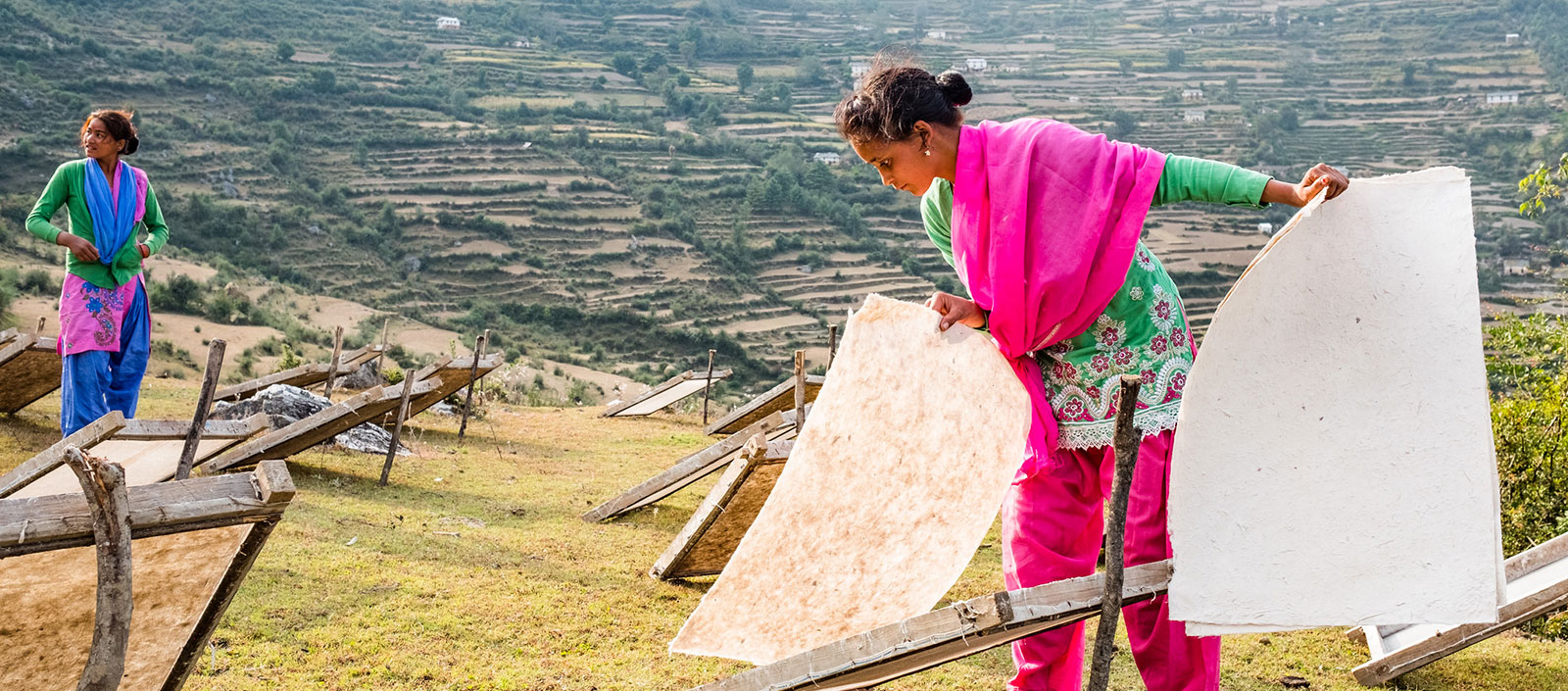Learning Resources
Biodiversity programming relies on evidence-based decision-making to achieve tangible and sustainable results.

Conservation Enterprise Impact Lab 2024: Harnessing a Theory of Change for Effective Conservation Enterprise Strategies Webinar Presentation
From May to September 2024, nine activity teams—including USAID staff and implementing partners—from seven countries across Latin America, Africa, and Asia participated in the fourth iteration of the Conservation Enterprises Impact Lab.

Conservation Enterprise Impact Lab 2024: Harnessing a Theory of Change for Effective Conservation Enterprise Strategies Posters
From May to September 2024, nine activity teams—including USAID staff and implementing partners—from seven countries across Latin America, Africa, and Asia participated in the fourth iteration of the Conservation Enterprises Impact Lab.

The Community-Based Landscape Connectivity Model: A Collaborative Approach to Secure, Protect and Sustain Kwakuchinja Wildlife Connectivity
This 2024 USAID Collaborating, Learning, and Adapting (CLA) Case Competition winner is about the USAID Tuhifadhi Maliasili (Preserve Natural Resources) project.

Wild Meat Toolkit for Integrated Design, Monitoring, and Adaptive Management
The Wild Meat Toolkit for Integrated Design, Monitoring, and Adaptive Management seeks to enhance understanding of wild meat issues and foster integrated learning and engagement in this critical area.

Colombia Land for Prosperity - Southern Meta and the Vicinity of Chiribiquete National Park: Impact & Performance Evaluation Baseline Report
This report presents the baseline findings of the Land for Prosperity - Southern Meta and the Vicinity of Chiribiquete National Park project (2019–2024) evaluation.

Climate-Resilient Biodiversity Programming Stocktaking
It is no surprise to conservationists that biodiversity is at great risk from climate change; however, as climate impacts become more acute, attention to the long-term impacts of climate change is growing.

Combating Wildlife Trafficking Learning Agenda
To increase the effectiveness of commonly applied strategic approaches in Combating Wildlife Trafficking (CWT) programming, the CWT Collaborative Learning Group has updated its Learning Agenda originally published in 2017.

Webinar Slides: Improving Conservation Enterprises Effectiveness through Peer-to-Peer Learning
As part of the USAID Agency Learning and Evidence Month 2023, the Conservation Enterprises Collaborative Learning Group hosted a webinar showcasing its Impact Lab model for encouraging peer-to-peer learning.

Colombia Land for Prosperity - Southern Meta and the Vicinity of Chiribiquete National Park: Impact & Performance Evaluation Design Report
This document outlines the approach to the Land for Prosperity Southern Meta and the Vicinity of Chiribiquete National Park evaluation, including research questions, methodology, timeline, analytical framework, and sampling strategy.

Conservation Enterprise Impact Lab 2022 : Using a Theory of Change to Learn Across Conservation Enterprises Posters
From May to August 2022, seven activity teams, including USAID staff and implementing partners, from five Missions around the globe joined the second round of the Conservation Enterprises Impact Lab to share with each other their successes and challenges in implementing conservation enterprises.

Conservation Enterprise Impact Lab 2022: Using a Theory of Change to Learn Across Conservation Enterprises Webinar Presentation
From May to August 2022, seven activity teams, including USAID staff and implementing partners, from five Missions around the globe joined the second round of the Conservation Enterprises Impact Lab to share with each other their successes and challenges in implementing conservation enterprises.

HEARTH Monitoring and Evaluation Toolkit
This resource is a cross-sectoral monitoring and evaluation toolkit designed for the Health, Ecosystems, and Agriculture for Resilient, Thriving Societies (HEARTH) Global Development Alliance.

Private Sector Engagement Learning Agenda: Latin America and the Caribbean Environment
The goal of the LAC Environment Learning Agenda for Private Sector Engagement is to generate and share evidence to inform USAID efforts to engage the private sector to achieve environment outcomes, including biodiversity conservation and sustainable landscapes.

Monitoring, evaluation, and learning for anti-corruption projects: What conservation practitioners need to know
Monitoring, evaluating, and learning (MEL) from the results of anti-corruption efforts involves theorizing complex pathways of change and identifying ways to assess progress along the way that can inform adaptive decisions.

Webinar Presentation: Working with the Judiciary – Lessons from Central America
Each event in the 2021 CWT Learning Series will feature speakers from USAID and partners, to share lessons learned about common strategic approaches applied to reduce wildlife trafficking and provide opportunities for peer to peer learning.

USAID Wild Meat Learning Agenda
Wild meat, also known as “bushmeat,” refers to the meat of wildlife species hunted or collected for human consumption.

Lessons from Engaging the Private Sector in Sustainable Cattle Practices: A LAC Environment Learning Series Webinar | Slide Deck
Hosted by the LAC Environment Private Sector Engagement Learning Group, this webinar gathered input on priority Mission-generated learning ideas, highlighted the Learning Group's new website and Google Group, and dug into a Case Study on PSE for sustainable cattle practices in Paraguay and Colombia.

Measuring Efforts to Combat Wildlife Crime: A Toolkit for Improving Action and Accountability
This resource (also known as the CWT Toolkit) includes results chains, suggested indicators, and suggested outcome statements for ten common strategic approaches to combat wildlife crime.

Guatemala Tropical Forest and Biodiversity Assessment
The purpose of this task was to carry out an analysis of Tropical Forests and Biological Diversity for the USAID/Guatemala Mission, as required by amendments to the Foreign Assistance Act (FAA) of 1961.

Evaluacion de Bosques Tropicales y Diversidad Biologica de Guatemala
El propósito de esta tarea fue llevar a cabo un Análisis de Bosques Tropicales y Diversidad Biológica para la misión de USAID/Guatemala, tal y como lo requieren las enmiendas de la Ley de Asistencia Extranjera (FAA por sus siglas en inglés) de 1961.



